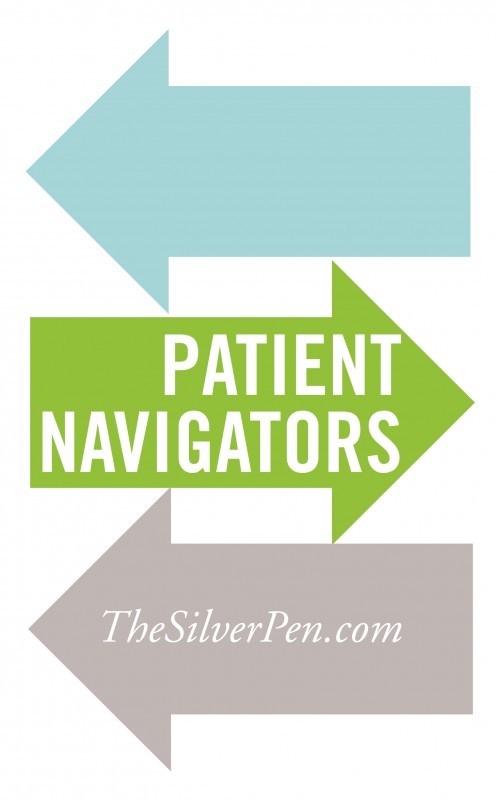Patient Navigation: Bringing Clarity to Chaos
This weekend at the LBBC conference, I did a Happy Dance for and encouraged people to engage Patient Navigators.
It’s draining enough to be sick, let alone having to deal with the health care delivery system and all of its complications. Between the time of my diagnosis and starting treatment, I had easily had 16 appointments. ….Oh and each appointment involved some kind of decision-making adding multiple layers of stress and anxiety.
Patient navigators are A-MA-ZING Silver Linings to a cancer diagnosis (or any diagnosis for that matter!) because they take a broader view of patients needs. In other words, they don’t just focus on one organ.
Here are some of the amazing things that Patient Navigators do:
- Assist in communication among physicians & patients
- Help people define health care goals
- Help people learn about options by researching diagnoses & treatments
- Set agendas and prepare lists of questions for doctor visits and shape expectations
- Help people realize that they may have more options than their doctors suggest
- Broaden thinking
- Gather records and create a summary of a patient’s medical history
- Speak the language of the healthcare team and provide a translation
- Help empower patients to become more savvy health care consumers
- Help people solve medical mysteries because they can spend more time on research than most primary-care physicians
Patient navigators often accompany clients to appointments and hospital visits, serving as an advocate and reality check. They also consult by phone.
Though it’s typically best to engage patient navigators from the time of a diagnosis, they can jump in at any stage, whether you are facing a recurrence (hope not!) or long-term care.
Many cancer centers have patient navigators on staff. There are also independent patient navigation companies that are for hire. Prices vary. If you decide to hire a patient navigator, here are some questions to ask:
- Have you handled cases like mine before?
- What would you typically do for someone in my situation?
- What is your background & training?
- How long will it take to perform the services I need?
- What do you charge? How do you charge?
- Do you provide written reports?
- Do you have references?
- What are your hours?
- How do you communicate?
I can’t overstate how valuable patient navigators are. They can make all the difference in the world when navigating the health care system. I hope that you are able to engage a patient navigator in your care. FYI, here are some additional resources:
- National Association of Health Care Advocacy Consultants: http://nahac.memberlodge.com
- AdvoConnection: http://advoconnection.com
Oh and here is a fantastic article describing Patient Navigators in more detail: http://awomanshealth.com/patient-navigators-wade-through-complex-cancer-care/



My hospital had a breast cancer coordinator, who was so helpful to me throughout the entire experience, what a silver lining she was! She helped me several times: when I wanted to switch oncologists because I wasn't happy with the way my first wanted to handle my chemo regimen, when I decided to get a 2nd opinion re my mastectomy and then generally in the beginning when I was first diagnosed she gave me tons of info –recommending that I go on caringbridge.org to write about my experience in order to keep my family and friends updated, as well as suggesting I might be a candidate for Oncotype DX. I always refer to her as my Guardian Angel, she was so helpful. Great insights, and a wonderful post, as always!
So happy to hear this, Claudia! Wonderful. Thank you so much for sharing!